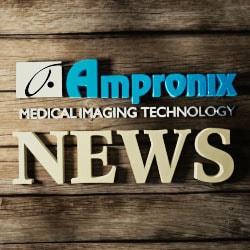The moratorium will remain in effect until guidelines for chimera research are ratified
Orange County, CA - August 5th 2016 - In a blog post published Thursday, Associate Director for Science Policy Carrie D. Wolinetz announced the National Institutes of Health’s (NIH) intent to lift the ban on funding research in relation to the injection of human stem cells into animal embryos.
NIH hopes their proposal will address concerns related to the decisively controversial topic, which raises questions of ethics and animal welfare. The plan includes amending Guidelines for Human Stem Cell Research and implementing a steering committee to serve as an additional gatekeeper before funding approval.
Last September, NIH issued a moratorium on these chimera experiments for deliberation on the appropriate guidelines in this scientific endeavor. Following the ban, a NIH held a workshop wherein panelists explored animal welfare and bioethics relating to the introduction of human pluripotent cells to animal embryos. Derived from any kind of child or adult tissue, pluripotent cells are genetically modified to behave as stem cells.

Chimeras have been utilized by biomedical scientists for several years now. For instance, human tumors are placed in rats’ bodies to study cancer and mice are equipped with human immune systems to facilitate AIDS research. However, the current issue differs in that it would inject human pluripotent cells in early animal embryos.
Those cautious of this research are weary of the implications associated with creating chimeras. Some say it’s deplorable because it blurs the line between humans and animals, irrevocably changing the nature of our relationships to them. Others are critical of unintended consequences, like inadvertently imbuing a sheep with human consciousness or accidentally breeding mice implanted with human eggs and sperm.
To alleviate these fears, NIH’s proposed guidelines prohibit any experiments involving the breeding of animals that could potentially result in the fertilization of an egg, or sperm development. In fact, the lifted restrictions would only concede to two types of chimera experiments.
Scientists believe engaging in this research will allow them accrue a greater understanding of disease, develop more effective treatment methods, and eventually, grow human organs in sheep, cows, or pigs for human transplantation. To achieve this process of genetic engineering, DNA in animal embryos are edited before pluripotent cells are introduced. As the embryo develops, the human components—like a brain, liver, or heart—will grow in their bodies.
In one type of approved examination, scientists would introduce human cells to post-gastrulation animal embryos, effectively modifying those embryos with human brain cells or tissue, with the exception of rodents. This kind of research has the propensity to provide insight to Alzheimer’s and Parkinson’s disease.
The other sanctioned experiment grants permission to implant human pluripotent cells to animal embryos up until the end of the gastrulation period. This type of research can lead to growing organs for transplants. To perform this type of experiment on primates, however, scientists must wait until after the blastocyst stage, or when organs have formed as they are genetically similar to humans.
Currently, interested citizens are encouraged to provide public comments to NIH for additional considerations. Adopting these conditions to move this realm of science forward will allow for responsible advancement of biomedical research and maximize benefits while minimizing risks.
Contact Ampronix:

Email: info@ampronix.com
International Sales: +1 949-273-8000
Domestic Sales: 1800-400-7972 for US and Canada
Follow Us:
Share This Article:
View our Product Catalog Online Here
About Ampronix
Ampronix is a renowned authorized master distributor of the medical industry's top brands as well as a world-class manufacturer of innovative technology. Since 1982, Ampronix has been dedicated to meeting the growing needs of the medical community with its extensive product knowledge, outstanding service, and state-of-the-art repair facility. Ampronix prides itself on its ability to offer tailored, one-stop solutions at a faster and more cost-effective rate than other manufacturers. Ampronix is an ISO & ANSI/ESD certified facility. To learn more go here.
The moratorium will remain in effect until guidelines for chimera research are ratified Orange County, CA – August 5th 2016 – In a blog post published Thursday, Associate Director for Science Policy Carrie D. Wolinetz announced the National Institutes of Health’s (NIH) intent to lift the ban on funding research in relation to the injection of human […]



